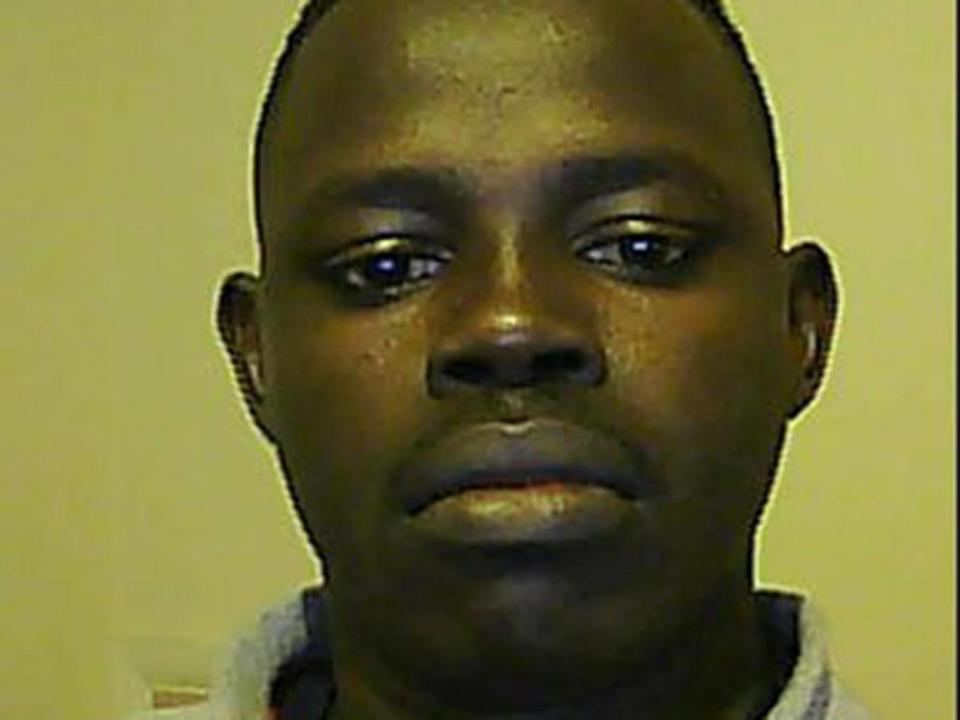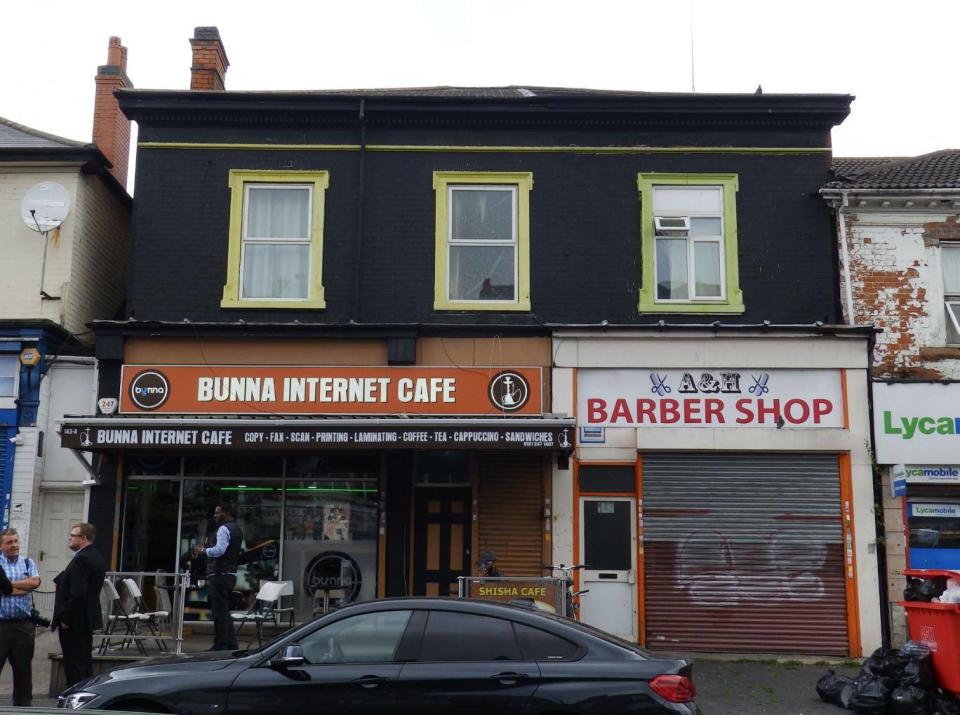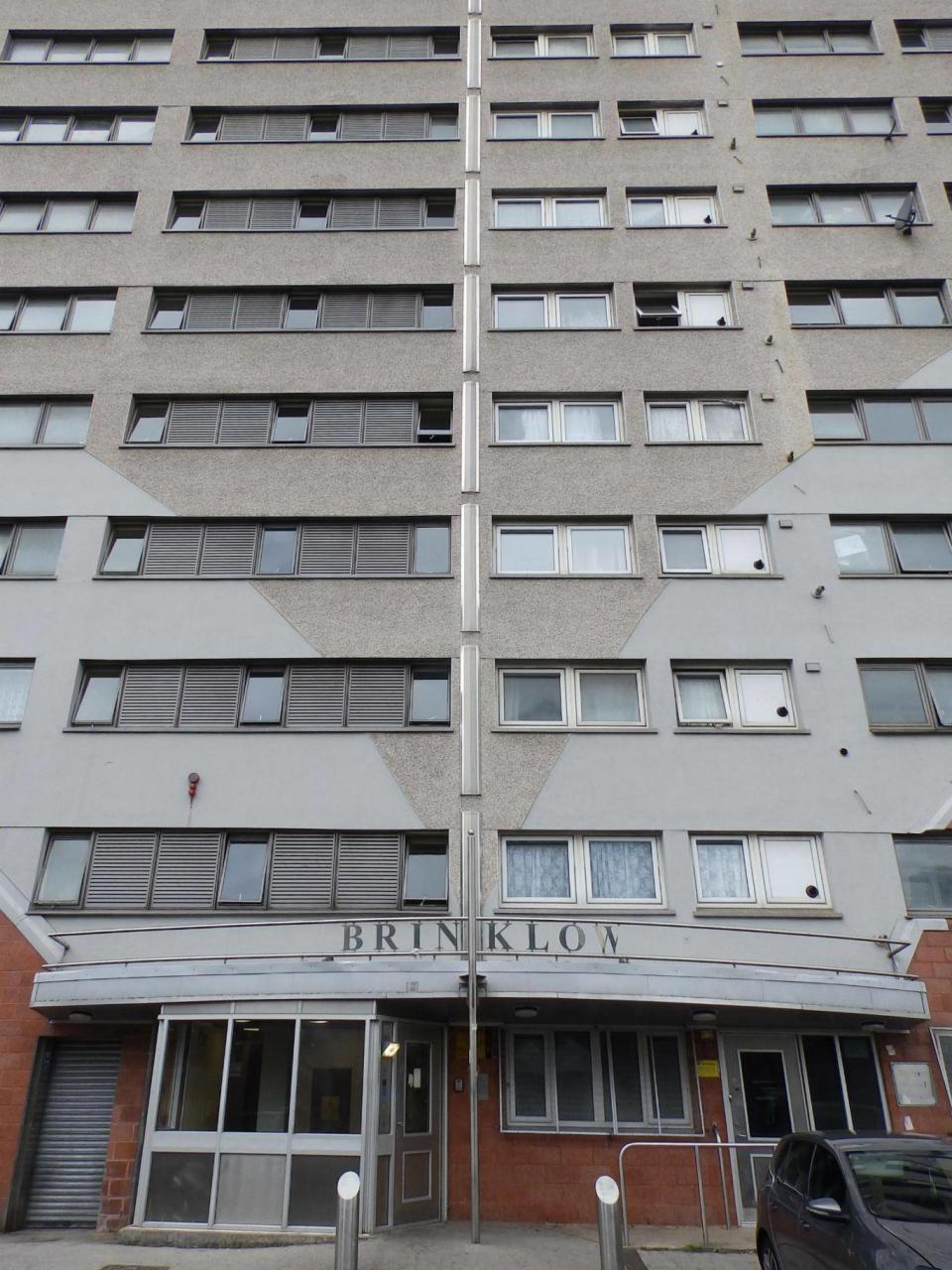Salih Khater: Shock and scepticism in Birmingham as community comes under microscope over Westminster 'terror attack'
As police intensified their investigation into an alleged terror attack in Westminster, the community where suspect Salih Khater lived in Birmingham reacted with shock – and scepticism.
The trustee of a local mosque said the crash was the latest incident being used to cast Muslims as the “bogeyman in society”, and urged people not to jump to conclusions.
Meanwhile, friends of the 29-year-old were unable to believe the avid footballer, former student and “very good man” could be responsible for an alleged act of terrorism.

Mr Khater is well known to the tightly knit Sudanese community in Birmingham, where locals said he had lived for several years after coming to the UK as a refugee during the ongoing civil war.
As journalists swarmed around the Sparkbrook flat where the British citizen lived until around four months ago, customers at the internet cafe below spoke of their shock.
“He seemed like a normal guy,” a member of staff told The Independent. “He seemed like everyone else, like the rest of our customers. He would come for a coffee and use the computers. You can’t stop anyone coming in here, everyone comes.”
Police raided the flat hours after the attack on Tuesday morning and left later the same day, having completed another search in Birmingham and a raid on a flat where Mr Khater used to live in Nottingham.
Counterterror officers were continuing to search a tower block in the Highgate, Birmingham, area where the terror suspect was living until his arrest on Tuesday.

Investigators have still not established a possible motive for the alleged attack, and will be looking for any evidence of political or religious affiliations.
A mother emerging from Brinklow Tower with her two young children recognised Mr Khater from a photograph and said she had seen him in passing. “It’s a shock, he was so close,” she added.
Many locals going about their normal business had not heard news of the incident in Westminster but expressed their dismay that the suspect was linked to the area.
Birmingham has come repeatedly into focus as been the home of several terrorists, including the Westminster attacker Khalid Masood, UK’s first suicide bomber, its first al-Qaeda plotter, one of the financiers of the 9/11 atrocity, and extremists who went to fight for Isis.
Nassar Mahmood, a trustee at Birmingham Central Mosque, said Mr Khater did not worship there and enquiries suggested he was not a “fervent” Muslim.
“We’ve tried to be a bit proactive because generally at these kind of times people speculate and they apportion blame very quickly – we want to avoid that,” he added.
“Some community members are upset, in this time of heightened Islamophobia against our community and with the focus by the far right on Muslims as the bogeyman in society.
“Generally, who tends to suffer is our women, because they’re more visible [as Muslims], and in this way the recent comments by Boris Johnson haven’t helped either.
“We’re used to people from the EDL, BNP, the far right using us as scapegoats, but when people in the government say this it’s particularly harrowing for the community. It’s affecting people who are the most vulnerable in society.”

Mr Mahmood believes radicalisation has declined in Birmingham in recent years, and sees the main challenge to the local community as “skyrocketing” gang-related violence.
But he said the mosque was mounting counter-extremism efforts by running a youth group and using “credible scholars to disseminate the true picture of Islam”, and prevent people being convinced by Islamist ideology or terrorist propaganda.
A friend of Mr Khater told The Independent he was “a normal Muslim, he’s not radical – he prays five times a day and that’s it, he doesn’t wear religious clothing”.
The man, who did not want to be named, said the terror suspect had been attempting to gain a visa to visit his family in Sudan, and believed he may have been trying to reach the country’s embassy in London and accidentally crashed.
“I’m shocked,” said the man, who did not want to be named. “He’s a very good man, a very friendly man, everybody knows him.
“His father died six or seven months ago and that’s why he was stressed.
“In my opinion he was going the wrong way and he didn’t know what he was doing, and when he saw the police he got scared – he’s lucky they didn’t shoot him.”
The friend described Mr Khater as a “simple man”, while some acquaintances said he was “slow” and thought he may have mental difficulties.
Mr Khater is believed to have lived in Birmingham for several years, and was not known to be married or have children.
The Independent understands he arrived in the UK in 2010 as an asylum seeker. He was granted refugee status and later applied successfully for British citizenship.
Mr Khater studied English at City College from 2010 to 2011, then a diploma in science at Birmingham’s South and City College between 2014 and 2017, and started an accountancy course at Coventry University last year.
“Salih Khater studied accountancy at Coventry University between September 2017 and May 2018,” a spokesperson said. “He failed the first year of his course, therefore his enrolment was terminated.”
Mr Khater described himself as a shop manager on his Facebook page, which also indicated a liking for Celine Dion and Rihanna.
The “about” section reads: “In past I’m great but now I say I don’t no [sic].”
He said he studied at Sudan University of Science and Technology and went to school in Wad Madani, a city southeast of Khartoum.
Metropolitan Police Assistant Commissioner Neil Basu said the suspect was not known to MI5 or counterterror police.
“Given that it appears to have been a deliberate act, the method used and the iconic location, it is being treated as a terrorist incident and the investigation is being led by officers from the Met’s Counter Terrorism Command,” a spokesperson said.
“At the time of the arrest there was nobody else in the vehicle, which has now been removed from the scene and searched. No weapons have been recovered at this stage.”
No other arrests have been made in connection with the ongoing investigation.

 Yahoo News
Yahoo News 
